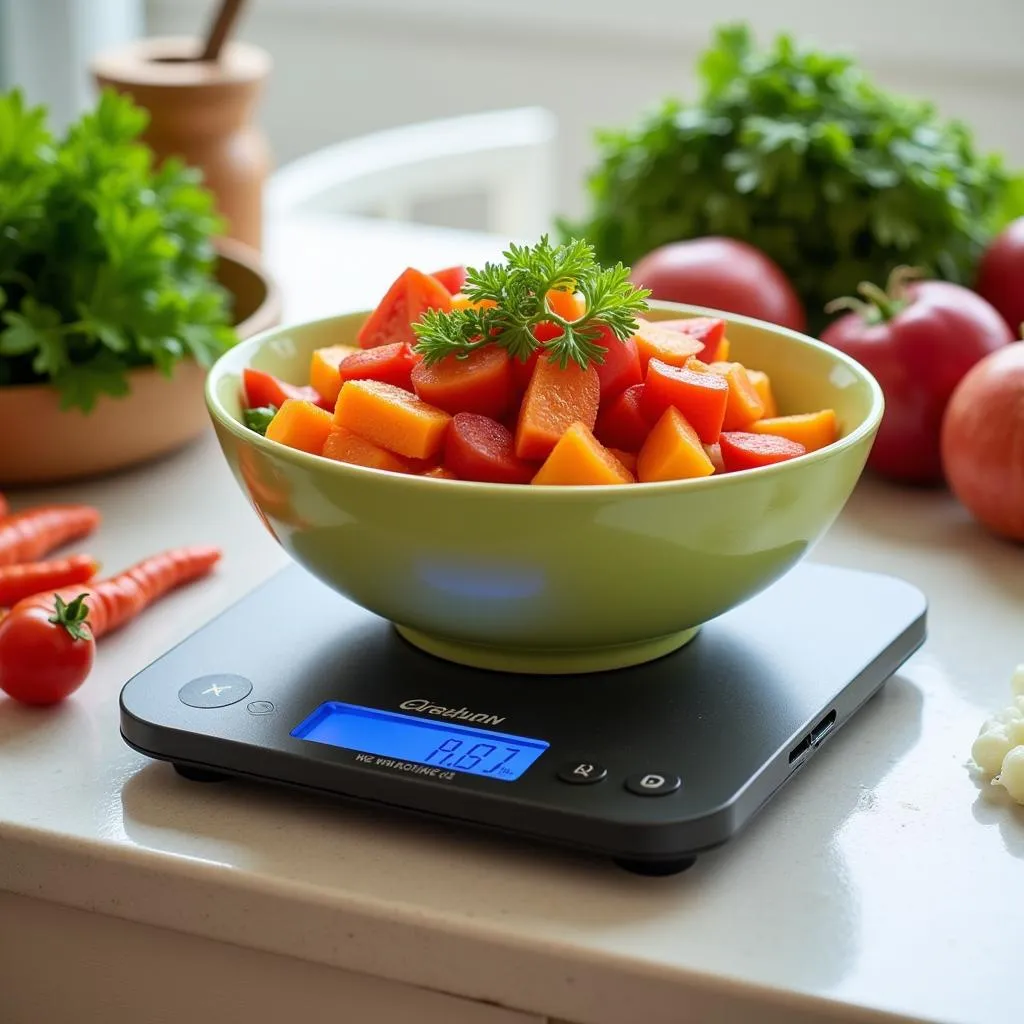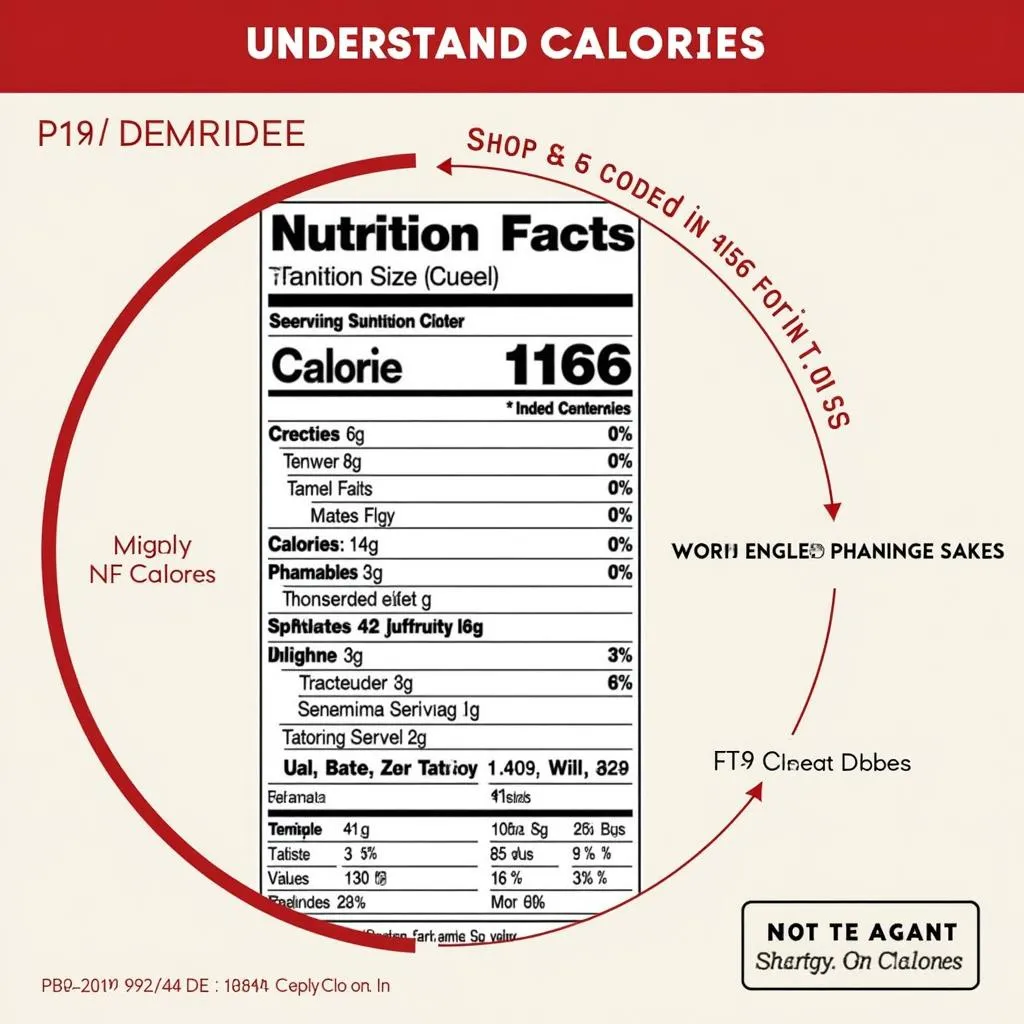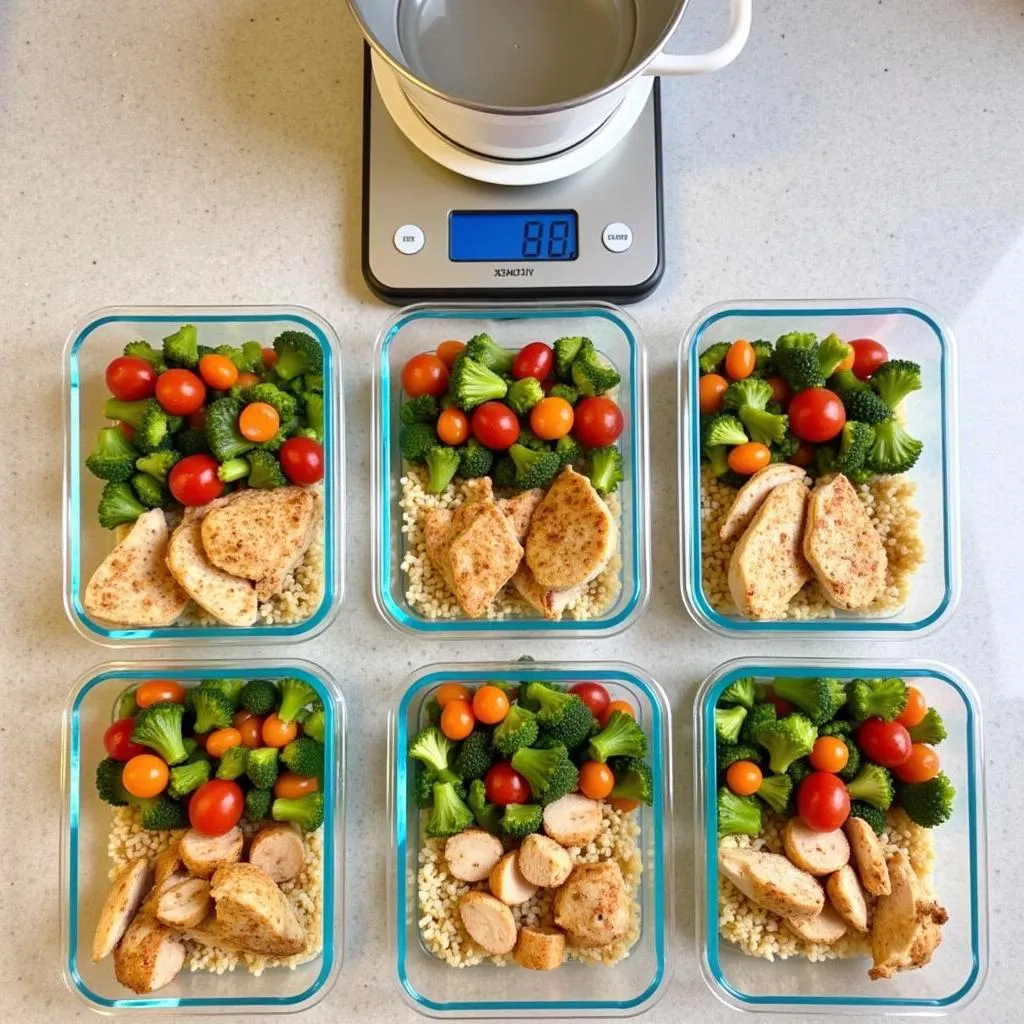Understanding the nutritional content of your food is crucial for maintaining a healthy lifestyle. While food labels provide valuable information, using a food scale can take your nutrition tracking to the next level. This comprehensive guide explores the benefits of using a food scale alongside nutrition facts, empowering you to make informed choices for your well-being.
 Using a food scale to accurately measure ingredients for a recipe.
Using a food scale to accurately measure ingredients for a recipe.
Why Use a Food Scale?
Food scales offer a precise way to measure ingredients, unlike measuring cups and spoons which can be inaccurate. This accuracy is paramount for:
- Portion Control: Accurately measuring food portions helps manage calorie intake effectively, aiding in weight management.
- Recipe Precision: Using a food scale ensures consistent results when following recipes, particularly for baking where ingredient ratios are crucial.
- Tracking Nutrition Facts: Precise measurements provide a more accurate picture of your daily nutrient intake, supporting dietary goals.
Understanding Nutrition Facts Labels
Food labels provide essential information about a product’s nutritional content. Key components include:
- Serving Size: This indicates the standard amount of food the nutritional information is based on. Using a food scale helps you adhere to serving sizes accurately.
- Calories: Total calories per serving are listed, helping you monitor your energy intake.
- Nutrients: Information on fat, cholesterol, sodium, carbohydrates, protein, vitamins, and minerals is provided, enabling informed choices based on dietary needs.
 Close-up view of a nutrition facts label highlighting key information.
Close-up view of a nutrition facts label highlighting key information.
Combining Food Scales and Nutrition Facts for Optimal Results
Integrating a food scale with your understanding of nutrition facts empowers you to:
- Calculate Nutrient Intake Accurately: Weighing your food allows you to calculate the exact amount of calories, protein, carbohydrates, and other nutrients consumed.
- Customize Your Diet: Based on your dietary goals, you can adjust portion sizes and track specific nutrients effectively.
- Monitor Progress: Consistent use of a food scale provides tangible data to track your progress and make necessary adjustments.
Tips for Using a Food Scale Effectively
- Choose the Right Scale: Opt for a digital scale that measures in grams and ounces for versatility and precision.
- Tare Your Scale: Before each use, ensure the scale reads zero with an empty container to account for its weight.
- Weigh Ingredients Separately: For accurate measurements, weigh each ingredient individually before adding it to your recipe.
Expert Insights
“Using a food scale is like having a personal nutrition assistant,” says Sarah Jones, a registered dietitian. “It eliminates guesswork and empowers individuals to make conscious choices about their food intake, leading to healthier eating habits.”
 Meal prepping with a food scale for a balanced diet.
Meal prepping with a food scale for a balanced diet.
Conclusion
Combining a food scale with your knowledge of nutrition facts is a powerful strategy for making informed food choices and achieving your health goals. By understanding portion sizes, nutrient content, and using accurate measurements, you gain greater control over your diet and overall well-being. Start incorporating a food scale into your routine today and experience the transformative benefits of mindful eating.
FAQs
1. Are food scales expensive?
No, affordable and reliable digital food scales are readily available.
2. Do I need to weigh my food every time I eat?
While weighing food at every meal is ideal for accurate tracking, even doing so occasionally can provide valuable insights.
3. Can I use a food scale for liquids?
Yes, most food scales can measure both dry and liquid ingredients.
4. What are some other benefits of using a food scale?
Food scales can help reduce food waste, improve cooking skills, and make meal prepping more efficient.
5. Where can I find reliable nutrition information?
Look for nutrition facts labels on packaged foods and consult reputable sources like government health websites.
Need further assistance on your health journey? Contact Mina Cones Food at 02437655121, email us at minacones@gmail.com, or visit our location at 3PGH+8R9, ĐT70A, thôn Trung, Bắc Từ Liêm, Hà Nội, Việt Nam. We have a dedicated customer support team available 24/7 to answer your questions and provide personalized guidance.